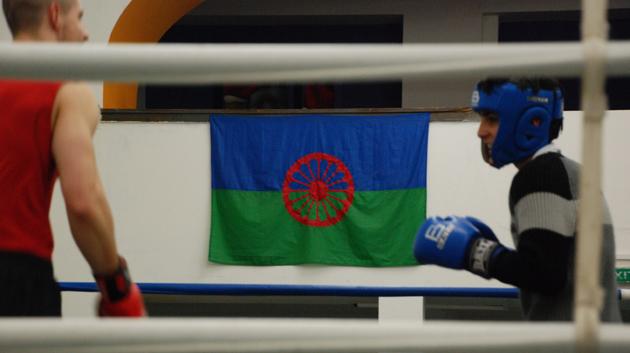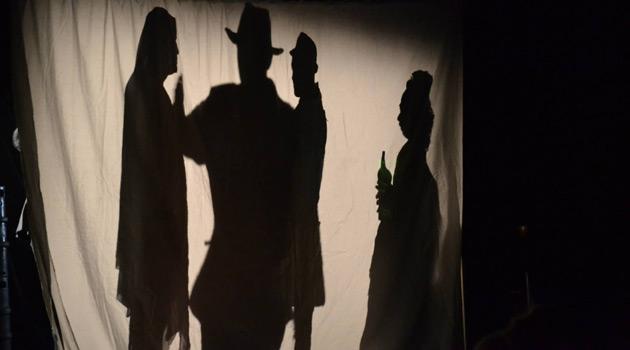Last month, Romea.cz began publishing interviews on a weekly basis with people who are doing interesting things to aid all of us in getting along here. When we were looking for a name for this column, the motto of this year’s International Romani Day, “Together We Can”, inspired me, so the organizers and I have decided to call this column “Together We Can” as well.
Interview with Jan Balog
I know Mr Balog to be a person who is not afraid to permanently reflect on matters and adapt what he does to the current situation. He used that skill in his boxing career, which made him the national champion of Czechoslovakia in 1985.
He then transitioned into establishing the Palaestra community center, where he does his best to aid children from socially vulnerable environments – and as he says with a chuckle, he originally wanted to work with Romani children, but frequently is visited by majority-society children as well. As if that were not enough, he is also the vice-chair of the Czech Government Council on Roma Minority Affairs.
Q: What, in your view, needs to be done so we can live together well here?
A: Do you mean in general, or what non-Roma have to do, or what Roma have to do? I believe Romani people should be more involved with their own culture, identity, and upward mobility. The majority population should mainly believe that such a focus might be meaningful.
Q: What, in concrete terms, does that look like on the Roma side?
A: We – and now I am thinking of Romani people generally – should want, on our own, some sort of change, at a minimum for our children. There is a need to begin to consider our upward mobility very seriously. I think we have a big debt to pay in that regard and we have not been involved with it for rather a long time. If I want a better apartment and a job, I must have an education that is adequate to the task. I don’t want a political party, I’m not talking about national self-determination, this is about individuals in specific situations.
Q: That almost sounds as if you feel upward mobility is not happening at all.
A: Many of the clients and others around me have given up on the option of changing anything about their lives and on the meaning of life in general, they are in a kind of vaccuum. They are just existing, without an aim to their lives, without any sense of purpose, of how to do something to improve their lives or of why.
Q: How, in your opinion, does such a situation arise?
A: They have stopped asking themselves how they can get into a better situation. I am speaking at the level of the individual now. One should not just wait for aid to come from outside, but one should want to be realize oneself, to be willing to undergo some discipline, some misery, some pain, whatever makes demands on one’s time but can bring about change for the better. I think that in the cases of the people with whom I am working, that is almost impossible.
Q: Do you have any good examples, though?
A: Many Romani people with children are returning to this country from England, or from living abroad elsewhere, and theyhave absorbed the atmosphere of a world where people usually encounter others with darker skin, or from other cultures and religions, and when they were abroad, they experienced the option of invisibility, because they blended into the crowd. They experienced the freedom of just being, an existence in which the rules are predictable, based on one’s ability and on opportunity, and the rewards are predictable, something that is common among Western countries. Then they return to this country and ascertain that although they might be able, there are few opportunities, and there is a lot of mistrust. Then disappointment arrives. People who are returning, who have traveled a lot, who have experienced a vacation abroad, the option of being just a tourist – they find themselves in a situation that is actually very interesting after returning to the Czech Republic. They have many instruments and mechanisms for working with all of this and they are able to fight for their position in society.
Q: I have heard from you for many years of examples of children who begin boxing at your club and somehow get a hold of themselves and start working on themselves. Now, however, you are sounding very pessimistic, why?
A: Children who live here in the Czech Republic experience exclusion already from the time they go to school. That’s just bad. If somebody comes to them from the outside, like a nonprofit, and attempts to change that, there is a great possibility these children can succeed in life. Many of them, however, fail during puberty. Some succeed because they grasp that education does not end with compulsory education, that it’s necessary to continue on to the next level, and it doesn’t end at the age of 19 or 20 either, there is another level after that, and it doesn’t end once they have graduated from college, because we must constantly educate ourselves all our lives. The spark of lifelong learning has been ignited, and it is burning, and I am terribly grateful for that, but we can still find many examples of teenagers who do not want to educate themselves. Sometimes there are objective reasons for that, and sometimes it’s just ordinary failure.
Q: Why do you believe that is? What are the factors that influence whether people give or whether they keep working on themselves?
A: Those who can deal with this are influenced by the environment in which they live, or by a person who brings some light into their life, shows them the way. Then it’s just about the circumstances and the will of the individual to succeed. I myself am a typical example of such a person – my Mom was illiterate, my Dad was half- illiterate, none of my relatives were educated, but I had an appetite for success. The factors differ.
Q: What are your dreams? If you had a magic wand, what would you conjure up?
A: If I could have a magic wand, I decidedly would wish to see Romani people working in managerial functions and in services, I would want to see Romani people in culture, in sports, in absolutely everyday life like any other full-fledged citizen of this country. I would also wish for people to show one another both more humility and more respect.

